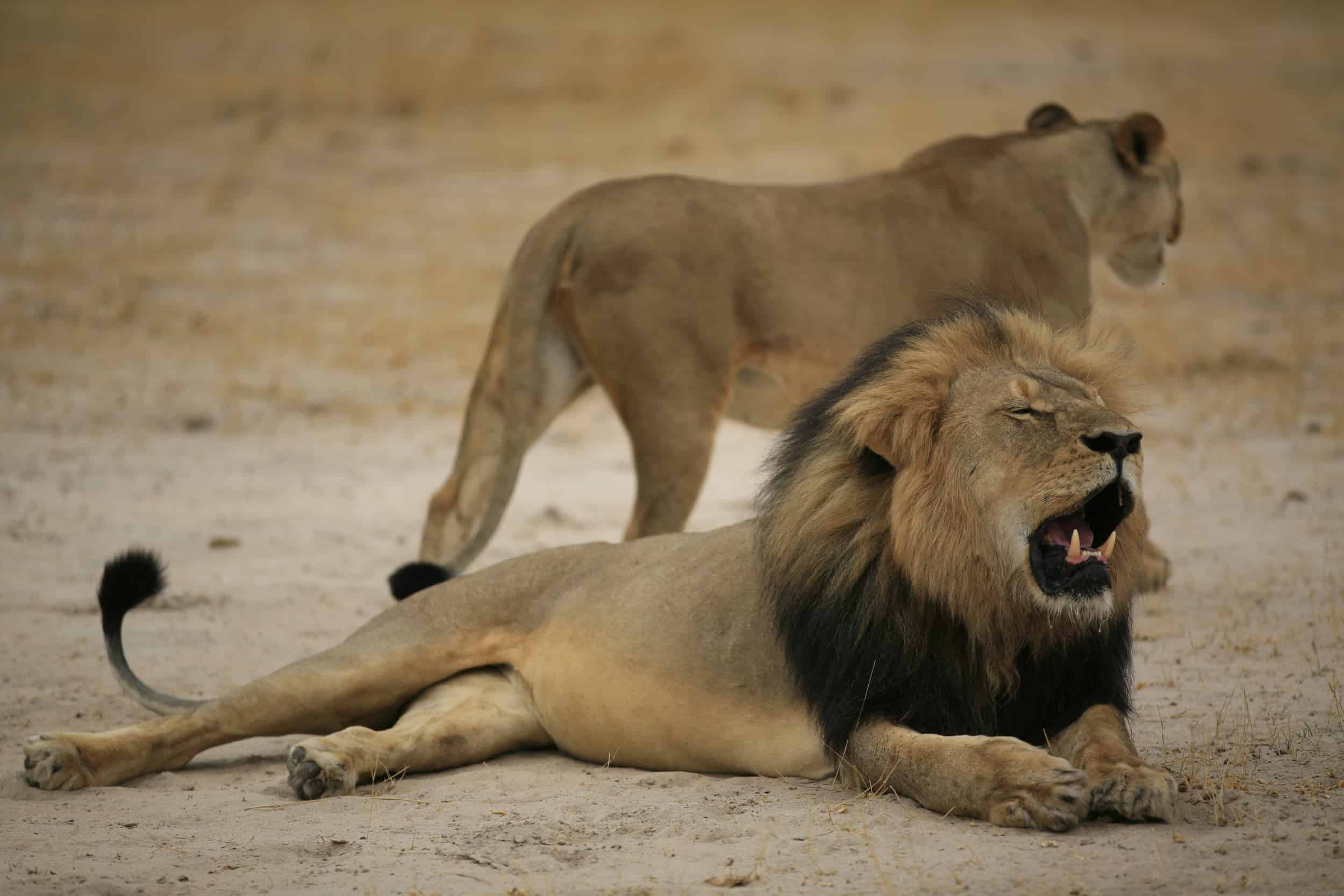Delta Air Lines, American Airlines and United Airlines will no longer allow the shipment of lion, leopard, elephant, rhinoceros and buffalo hunting trophies, the U.S. carriers said Monday.
Delta, which announced its ban first in an afternoon statement, said it was “effective immediately.”
“Prior to this ban, Delta’s strict acceptance policy called for absolute compliance with all government regulations regarding protected species,” the carrier said. “Delta will also review acceptance policies of other hunting trophies with appropriate government agencies and other organizations supporting legal shipments.”
Late Monday night, American Airlines announced its own ban on shipments of trophies from the animals that comprise what hunters frequently call “the big five.”
Effective immediately, we will no longer transport buffalo, elephant, leopard, lion or rhino trophies.
— americanair (@AmericanAir) August 4, 2015
According to NBC News, a United spokesman said Monday that the airline was also prohibiting big-game shipments. The airline did not immediately respond to The Washington Post’s request for comment Tuesday morning.
The bans by the three major U.S. carriers were announced amid mounting international outrage over the hunting death of one of Africa’s most iconic lions, Cecil, who was killed in Zimbabwe by a U.S. big-game hunter. Walter Palmer, a Minnesota dentist, has said he had “no idea that the lion I took was a known, local favorite.”
“I relied on the expertise of my local professional guides to ensure a legal hunt,” he said last week in a statement obtained by the Minneapolis Star Tribune.
See also: Rich US tourists kill hundreds of lions each year, and it’s all legal
Delta isn’t the first airline to take such action. Emirates Airlines announced a similar ban earlier this year, for example.
“Lions, elephants and the other species that make up the Africa Big Five belong on the savanna, not on the walls and in home museums of wealthy people who spend a fortune to kill the grandest, most majestic animals in the world,” Wayne Pacelle, president and CEO of the Humane Society of the United States, said in a statement. “Delta has set a great example, and no airline should provide a getaway vehicle for the theft of Africa’s wildlife by these killers.”
The Humane Society had urged the airline industry “to join the international fight to end trophy hunting.”
As The Washington Post’s Christopher Ingraham reported, wealthy U.S. tourists account for the majority of lions killed for sport in Africa. A 2011 report by the International Fund for Animal Welfare found that between 1999 and 2008, Americans brought home lion trophies (including heads and pelts) representing 64 percent of all African lions killed for sport during that period.
And that number is rising: “Of these trophies, the number imported into the U.S. in 2008 was larger than any other year in the decade studied and more than twice the number in 1999,” the report found.
“In Africa overall,” the report says, Americans “make up the greatest number” of big-game hunters targeting the big five, as well as animals such as antelopes and zebras — “particularly in countries where hunting safaris are expensive.”
The Zimbabwe Conservation Task Force, a nongovernmental organization, believes that Cecil was lured off the Hwange National Park — land on which he was protected.
In the aftermath of the hunt, protesters gathered at Palmer’s dental practice, and his membership to Safari Club International was suspended. He’s largely remained out of sight, though a representative has made contact with U.S. Fish and Wildlife Service officials.
On Sunday, Zimbabwe’s National Parks and Wildlife Management Authority accused a second U.S. doctor, Jan Seski, of illegally killing a lion in April. The wildlife authority said Seski killed the animal — without approval — with a bow and arrow on land where it was not allowed, near Zimbabwe’s Hwange National Park, according to the Associated Press.
Washington Post staff writer Peter Holley contributed to this article.
© 2015, The Washington Post






